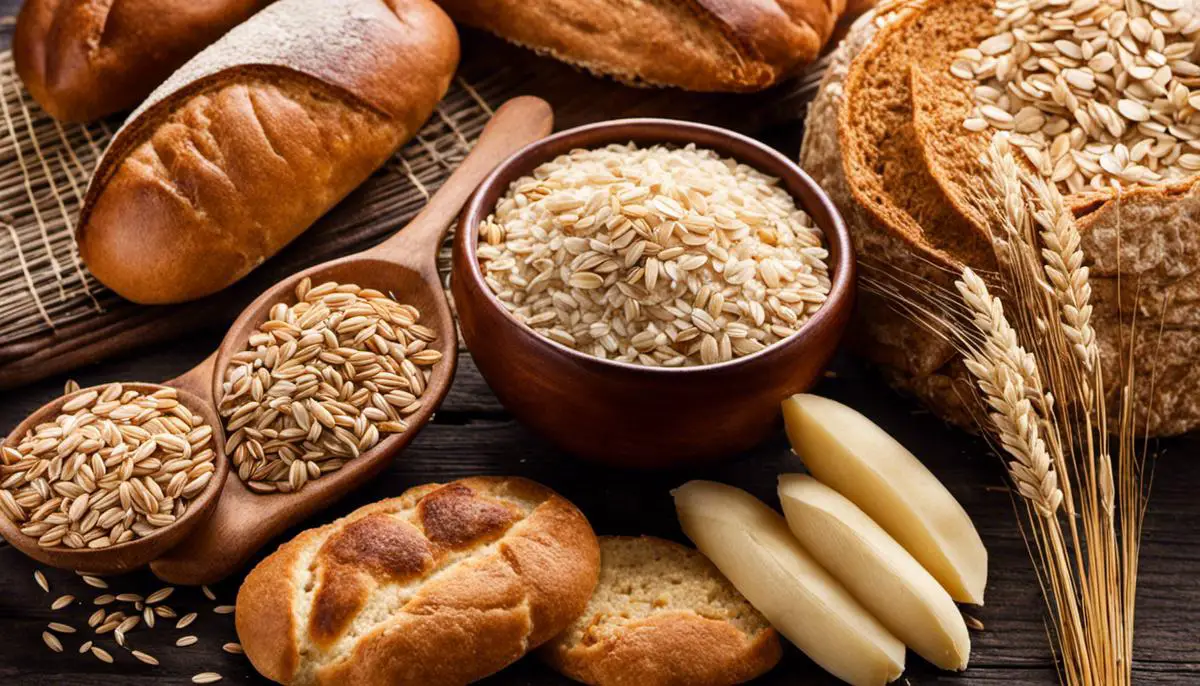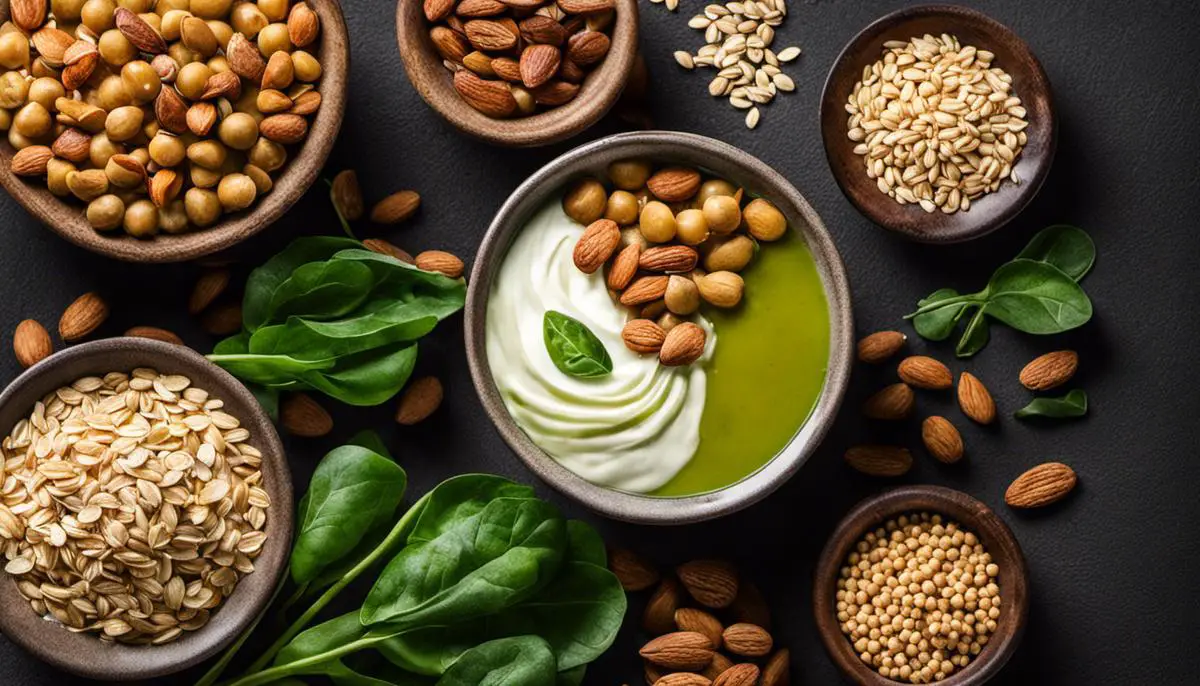As expectant and new mothers navigate the important task of nourishing their newborns, one aspect often calls for special attention – the production of breast milk. The value of breast milk is immeasurable, serving as the best source of nutrition for most infants, while also providing essential biological and emotional benefits that contribute to robust health and development. However, various factors, from hormonal changes to breastfeeding techniques, can impact the supply of this vital nutrient source. The role of certain dietary choices in boosting lactation is significant and often overlooked. This comprehensive exploration includes a blend of scientific research, nutritionist insights, and practical dietary solutions to help mothers optimize their breast milk supply.
Understanding the Importance of Breast Milk
Understanding the Importance of Breast Milk: An In-depth Discussion
Breast milk is an essential source of nutrition for newborns and infants, offering a perfectly balanced combination of fat, sugar, water, and protein needed for a baby’s growth and development. According to the American Academy of Pediatrics (AAP), breastfeeding also provides major health benefits to both mothers and babies, including a decreased risk of diseases such as asthma, leukemia, and sudden infant death syndrome (SIDS) for the baby, along with decreased postpartum depression risks for the mother.
Breast milk is also rich in antibodies that help babies fight off viruses and bacteria, thereby boosting their immune system. An article published in the Journal of Human Lactation noted a strong correlation between breastfeeding and the lower incidence of ear infections and gastrointestinal diseases in babies. While many infant formulas mimic the nutritional composition of breast milk, they can’t replicate the antibodies and living cells found in breast milk that contribute to these protective benefits.
The process of breastfeeding has also been found to foster a strong emotional connection between mothers and their infants. According to a study in the International Journal of Environmental Research and Public Health, breastfeeding mothers exhibited greater maternal sensitivity years after the breastfeeding period had ended, indicating lasting psychological benefits.
Nutritional Choices that Boost Breast Milk Supply
Many nursing mothers are anxious about whether they’re producing sufficient breast milk for their babies. Although numerous elements, such as the baby’s latch and feeding frequency, affect milk production, dietary choices play a pivotal role. Certain foods can act as a catalyst in augmenting breast milk supply.
Nutrient-packed grains like oats and barley are often advised for lactating mothers due to their rich iron and fiber content. A study featured in the Journal of Zhejiang University Science B indicated that consuming oats could stimulate the prolactin hormone, ultimately boosting milk production.
Including protein-rich foods like lean meat, eggs, and dairy products in your diet may also enhance milk production. In the British Journal of Nutrition, research showed a diet enriched with protein could spur the production of IGF-I, a vital growth factor for successful lactation.
Eating antioxidant-rich vegetables and fruits, especially dark, leafy greens and berries, support not just quantity but quality milk production. A study published in the Journal of Agricultural and Food Chemistry reinforced that these food items improve both the volume and quality of breast milk.
Beyond diet, continuous breastfeeding and proper hydration are essential for ample milk supply. Each nursing session triggers the mother’s body to produce more milk, while adequate hydration is necessary considering a significant portion of breast milk is water-based.
Supplements and teas like fenugreek, blessed thistle, and milk thistle have long been used in traditional medicine as galactagogues – substances that boost milk supply. Although the effectiveness of these substances varies based on different studies, some research, like a study in the Journal of Alternative and Complementary Medicine, did show potential benefits.
Despite these dietary suggestions, it’s crucial to remember that every mother’s body responds differently. What assists one mother in producing more milk might not have the same effect on another. Consequently, concerns about low breast milk supply should be addressed with a healthcare professional or lactation consultant.

Factors Affecting Breast Milk Production
Impact of Hormonal Fluctuations on Breast Milk Production
Hormonal activity significantly contributes to the production of breast milk. After childbirth, hormones like prolactin and oxytocin are crucial in establishing and sustaining lactation. The role of prolactin is to activate the body to produce milk, while oxytocin helps in the milk’s expulsion through the ducts and out of the nipple. It’s also worth noting that hormonal imbalances such as thyroid problems or polycystic ovary syndrome can negatively impact milk production.
Breastfeeding Techniques and Milk Supply
The breastfeeding technique adopted by a mother can significantly impact the amount of milk produced. It’s important to nurse frequently to stimulate production. The more often a baby suckles, the more signals are sent to the brain to produce more milk. The baby needs to be correctly latched onto the breast to efficiently extract milk. Insufficient milk removal due to poor latch or infrequent feedings can result in a reduced milk supply.
Baby’s Latching Position
A proper latch can aid in effectively transferring milk from the breast to the baby, which in turn stimulates more milk production. An incorrect latch can lead to sore nipples, a decrease in milk supply, and may also cause breast infections. A lactation consultant can be instrumental in helping mothers achieve the proper latching technique.
Diet and Breast Milk Production
A mother’s diet can have a considerable influence on breast milk production, and some foods are known to boost milk supply. Hydration plays a key role in producing sufficient milk. It is recommended for breastfeeding mothers to drink enough fluids, preferentially water, during the day.
Consuming foods like oatmeal, whole grains, and protein-rich foods can help increase the milk supply. Certain herbs such as fenugreek, fennel, and blessed thistle are believed to help with milk production. However, it’s essential to consult with a healthcare professional before starting any supplements.
Other foods known as lactogenic foods or galactagogues, like barley, brewer’s yeast and certain types of seeds (flaxseeds, sesame seeds) are also believed to boost milk production. Also, consuming a balanced diet containing fruits, vegetables, and protein can have a positive overall effect on milk production.
Understanding the Influence of Maternal Physical and Emotional Well-being
To maintain a healthy breast milk supply, a mother’s physical and emotional health plays a significant role. Factors such as stress, tiredness, and extended periods of time away from the baby can potentially impede milk production. It’s essential for nursing mothers to ensure good health with regular physical activity, balanced diet, stress management and adequate rest to boost the production of breast milk efficiently.

Dietary Solutions to Increase Breast Milk
The Benefits of Whole Grains for Sustaining Breast Milk Production
Switching to nutrient-rich foods like whole grains is a smart move for nursing moms to enhance their milk supply. Inclusive of brown rice, oatmeal, and whole wheat bread, these foods are packed with vital nutrients like fiber, protein, and a range of vitamins and minerals, all promoting lactation. To further aid infant development, many of these grains are fortified with extra nutrients like folic acid. Several studies have not only revealed the impact of whole grain consumption on the quantity of breast milk but also its quality.
Lean Proteins: Essential Building Blocks
Lean proteins, such as chicken, turkey, eggs, and low-fat dairy products like milk and cheese, are also beneficial for breastfeeding mothers. Proteins are the building blocks of physical tissues, and a higher protein diet can enhance milk production. Many lean proteins are also excellent sources of vitamin B12, which promotes nervous system health in infants.
Leafy Greens: Folate and Iron Powerhouses
Leafy green vegetables, including spinach, kale, and Swiss chard, are another key food group for lactating mothers. They are a rich source of iron and folic acid, both of which promote optimal infant growth and development. An increased intake of leafy greens also contributes to maintaining maternal health during the postpartum period.
Legumes: Boosting Breast Milk with Fiber and Protein
Beans, lentils, and other legumes are not just affordable, but also packed with fiber and protein—nutritional attributes known to bolster lactation. Specifically, chickpeas are often recommended for nursing mothers due to their high levels of B-vitamins and iron. In some cultures, fenugreek seeds, a type of legume, are traditionally used to increase milk supply, although scientific evidence to this effect remains mixed.
Seeds and Nuts: Healthy Fats and Minerals for Milk Quality
Nuts and seeds, particularly almonds, walnuts, chia seeds, and flaxseeds, contain healthy fats and minerals that can improve the quality of breast milk. They are especially rich in omega-3 fats, which are essential for the infant’s brain development. Consuming nuts and seeds can also contribute to the calorie intake a nursing mother needs to sustain milk production.
Fruits: Vibrant Sources of Vitamins and Hydration
Hydration is crucial for lactation, and fruits provide a fun, flavorful way to stay hydrated. They also supply vital vitamins and antioxidants that can enrich milk quality. Berries, melons, and citrus fruits are particularly beneficial, offering a mix of hydration and vitamin C, which bolsters the immune system of both mother and baby.
Sacred Herbs: An Age-Old Solution
Certain herbs, like fenugreek, fennel, and garlic, have been used throughout the ages to improve breast milk supply. While scientific evidence varies, many mothers claim these herbs help. It’s important to remind, however, that herbs should be consumed responsibly and under the guidance of a healthcare provider, as they can interact with certain medicines.
Understanding the role of diet in optimizing breast milk supply is essential. Every individual responds differently to various food items. However, the consensus remains on the profound impact of a well-rounded, nutrition-packed diet paired with thorough hydration and ample rest, all of which form the backbone of an ideal lactation-friendly regimen.

Recipes Targeting Lactation Enhancement
Nourishing Foods That Augment Breast Milk Supply
Often, certain foods and ingredients are highlighted for their unique lactation-enhancing properties. For instance, wholesome grains such as oats and barley are regarded highly. Herbs with robust profiles like fenugreek and fennel seeds are also suggested. Nutrient-rich leafy greens like spinach and kale, too, contribute significantly. Other dietary recommendations lean towards almonds, chickpeas, black sesame seeds, and flavorful additions like ginger, garlic, cumin, and turmeric.
Lactation-Boosting Oatmeal Recipe
Making a nutritious, lactation-boosting breakfast is simple with this oatmeal recipe. Begin by cooking a cup of rolled oats in two cups of water or milk. Once the oats are softened, add goodies like freshly cut fruits, crushed almonds, and a tablespoon of flaxseed. Both almonds and flaxseed are known to support milk production. Sweeten the dish with a touch of honey or maple syrup for a delicious start to the day.
Wholesome Green Smoothie Recipe
If you prefer something lighter in the morning, consider a green smoothie. Blend a cup of spinach or kale with a banana and half an avocado. These ingredients are filled with essential nutrients for nursing mothers. Adding a tablespoon of spirulina or brewer’s yeast can further enhance lactation. Finish with almond milk or water and enjoy this mineral-rich drink that can revitalize you and stimulate milk production.
Fenugreek Lactation Cookies
For a snack or dessert option, lactation cookies are a popular choice. The primary ingredient here is fenugreek, a herb known to stimulate milk production. Begin by mixing two cups of flour, a cup of oats, a teaspoon of baking soda, and two tablespoons of ground fenugreek. Add in a cup of butter, a cup of sugar, and two eggs. Combine the dry and wet ingredients and fold in extras like dark chocolate chips or raisins. Bake at 350 degrees Fahrenheit for about 12-15 minutes to get delicious, lactation-boosting cookies.
Lactation-Promoting Chickpea Stew Recipe
For a hearty dinner choice, try a chickpea stew. Chickpeas, or garbanzo beans, are excellent sources of protein that can aid lactation. Begin by sautéing onions, garlic, and ginger in olive oil. Add in cumin and turmeric, then toss in two cups of soaked chickpeas. Stir for a while before adding in vegetable stock. Let the stew simmer until the chickpeas are soft and then serve. This delectable stew helps replenish the nursing mother’s body and stimulate breast milk production.
Adapting Your Diet for Lactation
Adapting your diet to include foods known to boost lactation can have a significant impact on your breast milk supply. Remember to maintain a high level of hydration, as water intake can greatly influence your capacity to produce milk. Before embarking on any diet aimed to increase breast milk production, it is important to seek advice from a dietitian, nutritionist, or medical professional. Always adjust these food recommendations to suit your personal preferences and allergy restrictions to ensure a safe and enjoyable eating experience.

Professional Advice on Breastfeeding Nutrition
Nutritional Guidelines for Breastfeeding Mothers
As advised by experts, mothers who are breastfeeding may need to consume an additional 300-500 calories daily beyond their regular diet. This extra caloric intake serves to offset the increased energy utilized during breastfeeding and contributes to maintaining the mother’s overall health. Professionals typically recommend a diet high in protein, fiber, and complex carbohydrates. Such food elements not just offer sustainable energy, they also play a crucial role in stimulating lactation.
Foods to Increase Breast Milk Supply
Some foods have been identified to assist in increasing breast milk supply. Oats, garlic, fenugreek seeds, and fennel seeds are traditionally known to enhance milk production in breastfeeding mothers. Similarly, foods rich in omega-3 fatty acids, like salmon and chia seeds, are also recommended as they are instrumental in the production of healthy fats essential for the baby’s development.
Dietary choices also have a big role to play. Items like spinach, beet leaves, and other dark leafy greens are high in calcium, iron, and folate which are essential for lactation. Similarly, fruits rich in vitamin C such as oranges, papayas, and strawberries are also beneficial. These fruits not only enhance milk supply but also aid in the absorption of iron into the body.
Hydration and Breastfeeding
Hydration plays a significant role in breast milk production, and therefore, lactating mothers are advised to drink plenty of fluids, primarily water, throughout the day. Consuming an adequate amount of fluid not only keeps the mother hydrated but also aids in maintaining a steady milk supply.
Balanced Diet Tips for Breastfeeding Mothers
Maintaining a balanced diet is essential for breastfeeding mothers. They should have a variety of foods from all the five groups, namely grains, vegetables, fruits, dairy, and protein. Incorporating a wide array of foods ensure that both mother and child get a well-rounded influx of vital nutrients.
Mothers should also consider regular meal and snack times. Consistency helps the body to plan and optimize nutrient absorption and use, consequently ensuring a steady supply of milk for the baby.
Although nutrition in lactating women predominantly focuses on promoting optimal health and nutrient supply to the baby, the mother’s health and nutritional needs should not be neglected. Mothers should ensure that dietary intake meets their energy requirements and replenishes nutrients lost during the breastfeeding process.
Lastly, although it’s rare, certain foods might cause the infant to be gassy, fussy, or have a diaper rash. If that’s the case, it’s crucial for the mother to pinpoint the irritant food and remove it from her diet.
Personal dietary choices, cultural beliefs, medical conditions, and lactation needs are unique for every mother. Thus, it’s essential to seek advice from a healthcare provider or a nutritionist to create a personalized meal plan that suits the mother’s lifestyle while maximizing milk supply, ensuring mother and baby are both healthy and nourished.

In essence, the journey of motherhood comes with a profound responsibility to provide the best nutritive basis for a child’s growth and development. There’s no denying that breastfeeding is a unique and powerful way to achieve this. Grappling with breast milk production can be daunting, yet by understanding the influential factors and implementing strategic dietary solutions, it is possible to nurture a plentiful supply. Besides the nutritive boost they offer for lactation, the recommended foods and recipes contribute to a balanced and wholesome diet. Let professional advice guide your breastfeeding nutrition strategies, empowering you to make informed choices to foster your child’s wellbeing dually and your own.
